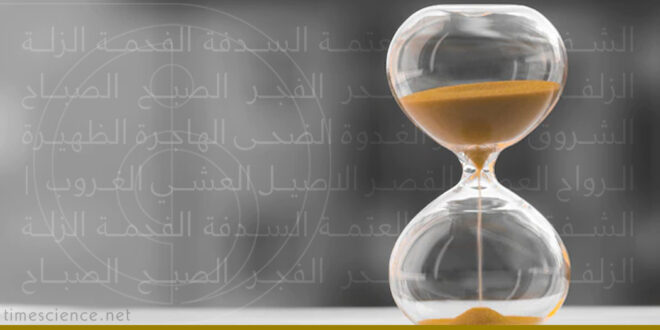To what extent is this assumption credible? What’s the point of it anyway? (has been published)
Many familiar claims that are repetitive in people’s chatters, or being cited from sources and references, need some “Scientific Treatment” in order to know the extent of “its credibility” and the extent of “its Importance and Efficiency”.
“El-Waqt and Az-Zaman” are one of the topics that such assumptions are repetitively mentioned in, even without any profound research and digging. For instance, we read for Salamah As-Saqa:” the Arabic language “The Language of The Qur’an” is unique with its richness of terminology related to Time concepts, therefore there’s no other language that can contend with it”.
Even some orientalists who were interested in studying Arabic concluded to that same assumption; the German scientist Ludwig Feuerbach said in that matter:” the Arabic language is the world richest one”?
We’re not about to approve this assumption nor are we about to disapprove it; as if we put the Arabic language and its everlasting wordbook “The holy Qur’an” in the same end of a scale, the assumption will elevate from being merely a “scientific observation”, to a higher degree assertion that takes its credibility from the ” Islamic Doctrinal Belief”, that is to say that the Qur’an is a book “with ZERO contradictions!”, and that no single person or a group of persons can come up with something alike it; be it terminologies, phrases, verses, or even meanings…
In reality, I wanted to highlight the “scientificity of making assumptions” and to answer the question: Is it true that the Arabic language is the richest language in making account about Time (El-Waqt and Az-Zaman)?
The main proof of those who support this assumption is that “the hours of a day have names in the Arabic language”, which is impossible to exist in other languages. It is even bizarre that some of the (retarded/contemporary) people calculate the day with the 24 hours; as though the names were put based on the mechanic watches that we use nowadays, when in fact, the 24 hours division was made even before that.
For example, when we opt to use terms like: “El-Hadjirah” (The hottest time of the day, basically from noon onwards), “El-Ghassaq” (The darkest times of the night), “El-Ghalass” (the semi-darkness at the end of a night before the light of the day comes out), “Ath-Thohr” (the time when the sun leaves the middle of the sky)… and so forth. Are those moments of time equal? And do they equal 60 minutes (or 1 hour) of those common mechanic watches i.e. 15° degree?
Undoubtedly, nobody knows about that, as every term implies a particular period of time. As a matter of fact, the latter differs from a day than another, from a season than another and from a country than another…
It is worth pointing out that “making assumptions about something is a part of holistically conceptualizing it” and saying that “there is no other language that can contend Arabic in terms of richness of terminology about Az-Zaman and El-Waqt (time)” is a claim that presumably compares Arabic with all the languages of the world without exceptions, and with a complete and intact inquiry. If not so, the assumption would be incomplete and incorrect. So who’s among the eminent scholars that made an investigation about all the world’s languages and compared them with Arabic, then concluded that there’s no language alike Arabic in richness of terminology about El-Waqt and Az-Zaman?
Furthermore, such a claim can fearfully be something that we, as muslims, would be criticized for not praised for. As even though we may consider that the Arabic language is the richest in making account about time (El-Waqt and Az-Zaman), its people are the least in investing Time at all levels, all contexts and all competition. For them, the momentum wheel has stopped and, alas, there’s no sign of any movement in their horizon. There’s no bigger proof to this reality than the fact that all “the names of Time instruments” are adopted into Arabic from the language of their inventers, in addition to the new physical measurements and the names of Time sciences..etc
Henceforth, the Arabic Language is strong in its essence, weak in its foundation.in the other hand, if we presumably assume that other languages are weak, then they are weak in their essence and strong in their populations. Therefore, we should be wary of such generalizing claims and flowery statements, as well as sticking to “the truthfulness of the matter”, and “the truthfulness of the matter” is indeed to give back to Time its importance and value in the scale of civilization, and to spend it in reclaiming and reconstructing earth, in research and industry and dynamicity and in enabling the spread of His true religion and in being His substitutes on earth as He has promised us, only if we consent to His will…
Indeed, Allah is The Protector of The Good-Doers
Dr. Mohammed Babaammi
Translated by: Omar Bouchelaghem
El-Manahidj Institute, AlgiersTuesday 01 Rabi El-Awwel 1444/ September 27th , 2022.
 علم الزمن والوقت
علم الزمن والوقت



